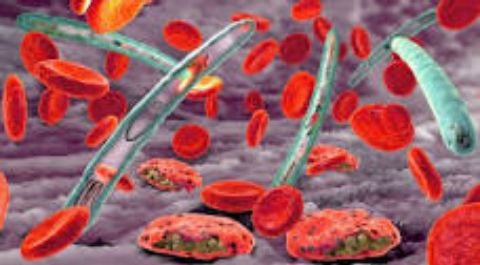Malaria is an incredibly serious and life-threatening disease that is caused by tiny parasites known as Plasmodium, which are transmitted through the bites of infected female mosquitoes, Entrepreneurng.com
This devastating disease is particularly prevalent in regions with tropical and subtropical climates, where it affects millions of individuals worldwide. It is crucial to understand the nature of malaria, including its symptoms, causes, preventive measures, and potential remedies, in order to combat this global health challenge effectively.
The symptoms of malaria typically include fever, headache, and chills, which can rapidly progress and become severe if left untreated. In some cases, the disease can even lead to death. The Plasmodium parasite is the primary cause of malaria, and it enters the human body when an infected mosquito bites a person.
Once inside the body, the parasite multiplies in the liver and then proceeds to infect red blood cells, causing them to rupture. This destructive process results in a decrease in the number of red blood cells, leading to complications such as anemia, jaundice, and other severe health issues.
Prevention plays a pivotal role in reducing the incidence and spread of malaria. Various preventive measures can be taken to minimize the risk of infection. One of the most effective strategies is the consistent use of mosquito nets while sleeping, which provides a physical barrier against mosquito bites.
Additionally, wearing long-sleeved clothing and applying insect repellents can further deter mosquito bites. It is also crucial to eliminate stagnant water sources, as they serve as ideal breeding grounds for mosquitoes. By regularly draining or treating such water bodies, the reproduction and proliferation of mosquitoes can be significantly reduced, thereby curbing the transmission of the disease.
In the unfortunate event of contracting malaria, there are several home remedies that may help alleviate the symptoms. Adequate fluid intake is essential to prevent dehydration, as fever and sweating can cause excessive fluid loss. Resting and allowing the body to recover is equally important, as it supports the immune system in fighting off the infection.
Over-the-counter pain relievers, such as acetaminophen or ibuprofen, can help reduce fever, alleviate headaches, and provide temporary relief. Moreover, certain herbal remedies have been traditionally used to treat malaria. Ginger, for instance, is believed to possess anti-inflammatory properties, while quinine and cinnamon have been historically employed for their potential antimalarial effects. However, it is crucial to note that home remedies should be seen as supplementary measures and not substitutes for professional medical care.
In conclusion, malaria is an extremely severe disease caused by parasites transmitted through the bites of infected mosquitoes. Its impact is particularly significant in tropical and subtropical regions, where millions of people are affected annually. Prevention plays a crucial role in combating malaria, with measures such as the use of mosquito nets, wearing protective clothing, and eliminating mosquito breeding sites.
In the event of infection, home remedies can provide some relief from the symptoms, but immediate medical attention is essential to prevent the development of severe complications. By combining preventive strategies, early detection, and effective medical intervention, we can strive to reduce the burden of malaria and protect the well-being of individuals worldwide.


